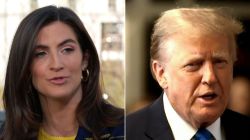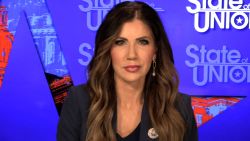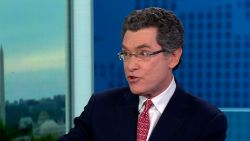This, from The New York Times, is really something:
“But in a meeting this year, Mick Mulvaney, the White House chief of staff, made it clear that Mr. Trump still equated any public discussion of malign Russian election activity with questions about the legitimacy of his victory. According to one senior administration official, Mr. Mulvaney said it ‘wasn’t a great subject and should be kept below his level.’”
So. The broad and deep attempt by Russia to influence our last presidential election – to aid Trump and hurt Hillary Clinton – can’t be brought up in front of the President because he can’t differentiate between that interference and those who question his legitimacy as president. And because of Trump’s views, and because he is purposely kept out of the loop on the issue, it’s difficult for top aides (in this case former Department of Homeland Security boss Kirstjen Nielsen) to get people within the administration to take future threats seriously.
Sure! This is all fine! Nothing to see here, folks!
The truth is that Trump’s unwillingness to truly acknowledge the future threat posed by Russia’s interference in the 2016 election is nothing new.
Remember this from Trump in 2016.
“It could be Russia, but it could also be China. It could also be lots of other people. It also could be somebody sitting on their bed that weighs 400 pounds.”
Since the start of his presidency, he has simply been unable/unwilling to hold these two thoughts in his head simultaneously:
1) Russia actively interfered in the 2016 election with the goal of helping Trump and hurting Clinton
2) Trump’s victory was not because of Russian interference
Those two ideas are not at all mutually exclusive. They can both be true. And the fact that Russia wanted Trump to win and tried to affect that outcome neither nullifies Trump’s victory nor takes the shine off of one of the greatest upsets in political history. Everyone seems to get that except Trump.
And remember, US intelligence says not only did Russian hackers access democratic computers – they also breached GOP computers, but opted not to release Republican documents to the world, like they did to Clinton and the Democrats.
As far back as May 2017 – in that famous/infamous interview with NBC’s Lester Holt –Trump made clear just how intertwined he believed allegations of Russian interference and questions about the legitimacy of his victory were. Here’s what he told Holt:
“I said to myself, I said you know, this Russia thing with Trump and Russia is a made up story, it’s an excuse by the Democrats for having lost an election that they should have won. And the reason they should have won it is the Electoral College is almost impossible for a Republican to win. Very hard. Because you start off at such a disadvantage. So everybody was thinking, they should have won the election. This was an excuse for having lost an election.”
As he campaigned around the country for Senate Republican candidates in 2018, Trump would always conflate the idea of Russian interference and his victory – asking people in the crowd if any of them were Russians who helped him win key swing states like Wisconsin and Michigan. (Trump senior counselor Kellyanne Conway made this argument over the weekend; “Donald Trump won – we didn’t need WikiLeaks, we had Wisconsin,” she said.)
And Trump sang the same song – again and again – on Twitter.
“Now that Adam Schiff is starting to blame President Obama for Russian meddling in the election, he is probably doing so as yet another excuse that the Democrats, lead by their fearless leader, Crooked Hillary Clinton, lost the 2016 election,” Trump tweeted in February 2018. “But wasn’t I a great candidate?”
“The Rigged Witch Hunt, headed by the 13 Angry Democrats (and now 4 more have been added, one who worked directly for Obama W.H.), seems intent on damaging the Republican Party’s chances in the November Election,” he tweeted in July 2018. “This Democrat excuse for losing the ’16 Election never ends!”
And this one, from just last week: “Anything the Russians did concerning the 2016 Election was done while Obama was President. He was told about it and did nothing! Most importantly, the vote was not affected.”
If you think that Trump’s long-stated skepticism about election interference doesn’t impact the way his administration chooses to address this issue, then the Times piece should serve as a wake-up call. Every person who works for a presidential administration – Democrat or Republican – is aware of what the President’s priorities are, what he cares about and what he doesn’t. The administration bends its considerable powers to making the President’s priorities become law. It ignores – or slow-plays – issues that it knows the President either doesn’t care about or for which he has actively expressed disdain.
Election interference by the Russians and other foreign powers is clearly in the latter camp in this administration. And that matters hugely because it almost certainly guarantees that what happened in 2016 won’t be an exception. It will become the rule.




















